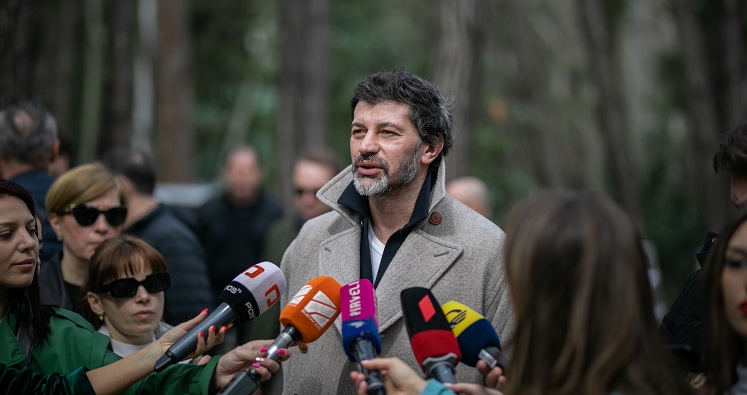Opposition’s “coup” attempts “doomed to fail” - ruling party Sec-Gen

Kakha Kaladze, the Tbilisi Mayor and the Secretary General of the ruling Georgian Dream party, on Monday responded to transparency bill rallies. Photo: Tbilisi City Hall press office
Kakha Kaladze, the Tbilisi Mayor and the Secretary General of the ruling Georgian Dream party, on Monday said “any attempts by the radical wing” of the domestic opposition to replace the current authorities “through chaos and revolution” were “doomed to fail”.
In comments to the media following protests in the capital city last week over the ultimately withdrawn controversial bill on transparency of foreign influence, the official stressed “certain opposition groups” had been engaged in “daily activities” to “drag the country into” the ongoing Russia-Ukraine conflict.
If someone thinks it is possible to change the Georgian Government through confrontation, revolution or bloodshed, they are very wrong. The change of the authorities can take place like in any democratic, developed country, in a civilised manner, by the decision of the country’s population”, Kaladze said.
He noted “If anyone goes beyond the scope of the law, this will always be followed by an appropriate response”, he said after police on Friday said it had arrested 133 individuals during protest rallies on March 7 and 8.
In his interview for Imedi TV on Sunday, Prime Minister Irakli Garibashvili also accused the country’s “radical opposition” of “misleading” the public over the bill, which involved registration of non-commercial legal entities and media outlets in the country as “agents of foreign influence” if they derive more than 20 percent of their funding from abroad, and claimed they stood behind the last week’s “destructive rallies” in Tbilisi.
Garibashvili also said the United National Movement - the largest opposition group in the country - had been taking “continuous actions” to “drag Georgia into” the ongoing war since Russia’s February 2022 invasion of Ukraine.
The officials comments came following the Parliament's rejection of the bill on Friday, in the wake of the decision by the ruling Georgian Dream party to withdraw it amid protests.
Georgian-based non-governmental organisations, the United States Department of State, European Union officials and the United Nations Office in Georgia all spoke out in criticism against the draft law before it was recalled.
 Tweet
Tweet  Share
Share